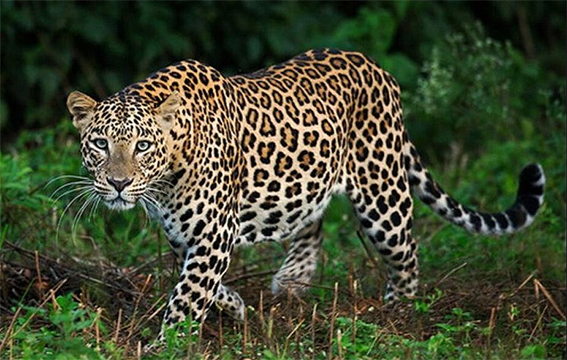Leopard Poaching in Chhattisgarh | 17 May 2024
Why in News?
Recently, the carcass of the leopard, aged around seven years, was found in Chaitma forest range under Katghora forest division.
Key Points
- According to the officials, some of the body parts of the leopard were missing which triggered the speculation of poaching.
- The illegal hunting, capturing, or killing of wildlife, often for their valuable body parts, such as tusks, horns, skins, or bones.
- According to data available from India's Wildlife Crime Control Bureau (WCCB) and attached police authorities, over 9,253 poachers were arrested between 2012 and 2018 in the country, but the rate of conviction was just 2%.
- Illegal wildlife trade is driven by high profit margins and, in many cases, the high prices paid for rare species.
- Vulnerable wild animals are pushed further to the edge of extinction when nature can't replenish their stocks to keep up with the rate of human consumption.
- Poaching is particularly prevalent in the States of Madhya Pradesh, Uttar Pradesh, West Bengal, Bihar, Maharashtra, Andhra Pradesh, Karnataka, Kerala, Rajasthan, Uttarakhand and Assam.
Leopards
- Scientific Name: Panthera pardus
- About:
- The leopard is the smallest of the Big Cats (of genus Panthera namely the Tiger, Lion, Jaguar, Leopard, and Snow Leopard), and known for its ability to adapt in a variety of habitats.
- A nocturnal animal, the leopard hunts by night.
- It feeds on smaller species of herbivores found in its range, such as the chital, hog deer and wild boar.
- Melanism is a common occurrence in leopards, wherein the entire skin of the animal is black in colour, including its spots.
- A melanistic leopard is often called black panther and mistakenly thought to be a different species.
- Habitat:
- It occurs in a wide range in sub-Saharan Africa, in small parts of Western and Central Asia, on the Indian subcontinent to Southeast and East Asia.
- The Indian leopard (Panthera pardus fusca) is a leopard widely distributed on the Indian subcontinent.

